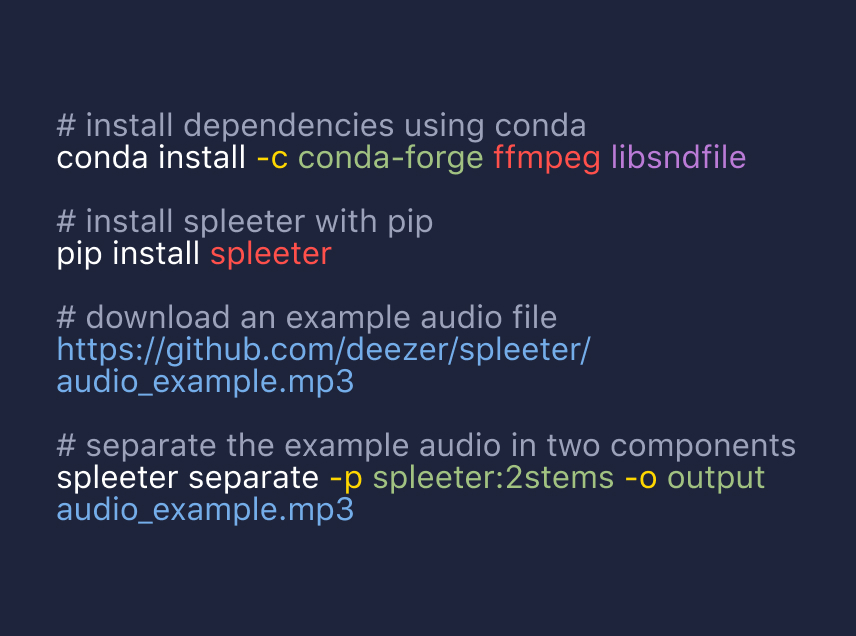
Get the track you need in just a few seconds.

Spleeter is a solution for recreating multitracks from a flat audio file, whether for a song, podcast, movie, game, etc. Our model extracts voice and instruments from music or any audio source and separates them from the rest of the file.
 Fast
Fast
Get the track you need in just a few seconds.
 Scalable
Scalable
Work on large catalogs you own automatically.
 Efficient
Efficient
Use the existing file, no need to re-record.
At Deezer, we use Spleeter to separate vocal and instrumental tracks and analyze them in order to enrich our metadata.
The tool also enables us to improve our recommendation engines and will open opportunities to build playlists around specific attributes, like a particular piano quality, for example.
Create learning or singing experiences by separating and removing the voice or instrument track from any song you own.

Split the elements in a track for studio work or to restore them one by one.
Remaster old songs and old audio tracks from movies or TV shows, even without the original multitracks.

Use Spleeter to rework a track or assemble a bespoke mashup. As a DJ or mixing app, benefit from the source separation features you need.

Use Spleeter to extract the voice track on any audio file (e.g. a file from a movie or TV show) and use it to then facilitate subtitle or lyrics creation via speech-to-text technology and our automated synchronization solution (AnSync).

For developers
Companies can benefit from Spleeter Pro, a faster, more efficient and accurate version, that will be available as an API.
You can already try our open source version below and reach out to learn more about Spleeter Pro and how it can be integrated in your company tools.
Our source separation library uses Tensorflow and comes with pre-trained models written in Python. You can use it straight from command line as well as directly via your own development pipeline as a Python library. It can be installed with Pip or used with Docker.
The library makes it easy to train source separation model (assuming you have a dataset of isolated sources), and provides already trained state of the art model.

Would you like to know more?
Contact us